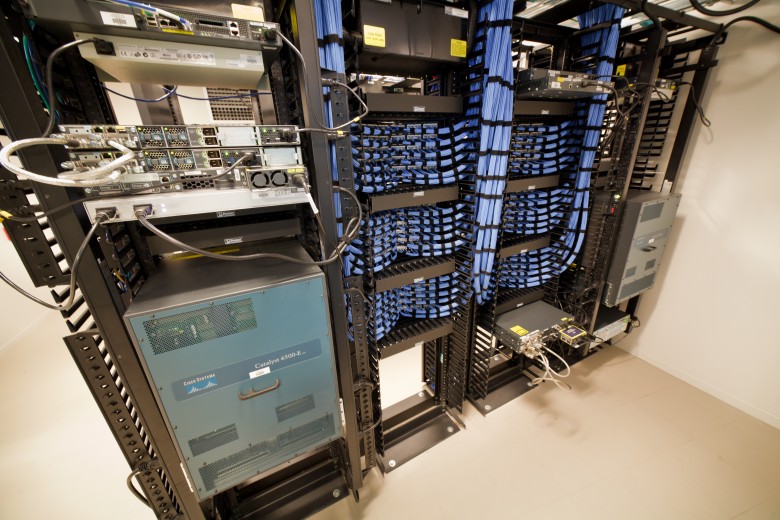Large operators will earn on the "Spring Law" by providing hosting services to small operators

In anticipation of the entry into force of the Yarovaya law, there was a lot of talk about what an overwhelming burden the costs of large Internet providers and mobile operators would fall. But now it is becoming clear that serious providers will not incur large, but small providers. Large operators can partially recoup expenses and even make a profit by providing paid services to small operators, Kommersant writes .
Federal telecom operators are preparing to provide regional data storage services. For example, Megafon is considering such an opportunity. Operator representatives said they received many requests from regional companies requesting data outsourcing. Now they are asked to indicate the network parameters, including the number of subscribers, incoming and outgoing traffic, peak load and forecast for these indicators at the end of 2019 - based on the collected statistics, Megafon calculates the feasibility of providing services and hosting tariffs.
According to the law, from July 1, operators are required to store all telephone conversations of subscribers, SMS and electronic messages of users for six months, and from October 1, all Internet traffic of subscribers for 30 days, including encrypted and video traffic.
Outsourcing options are being considered by MTS and Rostelecom. The latter has already decided to keep negotiations and traffic of Tele2 subscribers, since it owns 45% of its shares. Similar requests are received by the Akado provider. The issue of providing hosting services to small operators is discussed in Transtelecom.
The possible monthly income of Rostelecom from renting data centers to other operators can amount to at least hundreds of millions of rubles, said Denis Kuskov, Telecom Daily CEO.
General Director of Norsi-Trans Company (one of the manufacturers of certified solutions for SORM and the “Spring Law”) Sergey Ovchinnikov explained that large operators can provide two types of service, partial or full outsourcing of data storage: “In case of partial small operators still have to install systems for the collection and storage of voice traffic, and the storage of content can be provided to large operators. " The cost will be calculated depending on the network parameters.
However, all market participants make a reservation that certified equipment is not yet available on the market. Although it is approximately known what kind of iron it will be and what its cost is, the Ministry of Communications has not yet issued an order for its certification. In addition, it is important to obtain permission from the FSB for full outsourcing: “The emergence of such services from large operators is expected,” said Ovchinnikov. - But in the case of small regional companies, the question is whether they will have to store internal traffic or only external. If the FSB decides that it is necessary to store the internal one, in any case it will be necessary to install its own equipment. ”
Prices for data storage services from large telecom operators are difficult to predict. On the one hand, the tariffs for conventional hosting services in data centers are known. On the other hand, here we are talking about a “specialized service” that complies with the new legislation and uses certified equipment. Owners of ordinary data centers cannot offer customers this service. That is, large operators have the opportunity to take advantage of the "monopoly" position and set prices above the market.
However, small operators have no way out. Even higher prices are more profitable for them than the deployment of full-scale proprietary data storage systems. Now systems of operational-search measures (SORM) for the "Spring Law" are offered for 19 million rubles. for 10 Gb / s traffic, said Dmitry Galushko, the CEO of OrderCom.
Most likely, the monthly payment for small operators for outsourcing storage may turn out to be lower than if they implemented such solutions themselves: “Large operators will be able to recoup the cost of increasing storage and, possibly, even make a profit,” the source said in a comment "Kommersant."
The president of Rostelecom, Mikhail Oseevsky, repeatedly emphasized that “under the law of Yarovoy, no one will earn, everyone will only lose,” and the provision of services to small companies will only partially compensate for losses. However, some independent experts believe that leasing the infrastructure will still allow it to go to zero.
Thus, the beneficiaries of the "Spring Law" will be a limited number of companies. First of all, these are suppliers of certified solutions for SORM, which must be integrated into data centers in accordance with the "Spring Law". Secondly, these are large operators, who, although investing in the expansion of data centers, will be able to recoup these investments at the expense of small operators.
In other words, the bulk of the cost of implementing the "Spring Law" falls on regional operators. They are regarded as storage system donors, said Oleg Grishchenko, president of the Rosteleset Association. In addition, he expressed doubt that SORM developers will be able to create systems for processing such a volume of data. Now installed SORM-2 often do not work, as manufacturers cannot configure them correctly.
Warning at the request of the site’s administration: “When commenting on this material, please follow the rules. Please refrain from insults and toxic behavior. Post moderation works in the comments. ”
